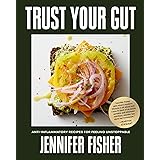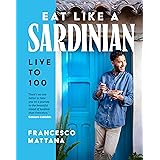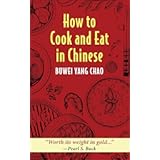When reflecting on personal health journeys, many individuals find themselves at a crossroads, seeking methods to reclaim vitality and well-being. The video above eloquently shares one such profound transformation, detailing a departure from nearly two decades of consuming acidic foods that manifested as chronic low energy, frequent colds, harsh coughs, and persistent mucus buildup. This narrative highlights a pivotal decision made on December 29th, 2015, to embrace Dr. Sebi’s nutritional guide, initiating a journey that culminated in a remarkable shift: feeling significantly more energetic and healthier at 34 than at 22.
This personal account serves as a powerful testament to the potential of dietary change, particularly the move towards an alkaline, plant-based regimen. The speaker’s initial 15-day liquid fast, sustained purely on coconut water and sea moss-infused herbal teas, not only broke a long-standing cycle of acidic food cravings but also established a new physiological baseline. This deep dive into the practical application and eventual evolution beyond Dr. Sebi’s protocol offers invaluable insights for anyone contemplating a similar path, demonstrating that structured dietary guidelines can be both a powerful catalyst and a stepping stone toward ultimate self-mastery in health.
Understanding Dr. Sebi’s Nutritional Guide: A Foundation for Health Transformation
Dr. Sebi’s nutritional guide, conceptualized by the Honduran herbalist and healer Alfredo Bowman, widely known as Dr. Sebi, is an intricate dietary framework predicated on the belief that illness stems from acid accumulation and mucus buildup in the body. This guide champions a radical shift towards an alkaline, plant-based diet, promoting foods that are natural, unhybridized, and genetically unmodified. The core philosophy posits that by restoring the body’s natural pH balance through specific food choices, individuals can prevent and even reverse a myriad of health conditions.
Key Principles of the Dr. Sebi Diet
The operational framework of Dr. Sebi’s nutritional guide is built upon several foundational principles, meticulously designed to detoxify and rejuvenate the cellular environment. These principles necessitate a deliberate departure from conventional Western diets:
- Alkaline Focus: The primary directive is to consume foods with a high alkaline pH, believed to neutralize acidity in the body and facilitate cellular repair.
- Strict Elimination of Acidic Foods: The guide stringently excludes foods considered “acidic” or harmful, including all animal products (meat, poultry, fish, dairy, eggs), processed foods, refined sugars, soy, corn, hybrid foods, and alcohol.
- Emphasis on Specific Plant-Based Foods: A curated list of specific fruits, vegetables, whole grains, nuts, and seeds forms the entirety of the allowable diet. These are generally indigenous, non-hybrid, and organic. Examples include wild rice, quinoa, spelt, specific berries, melons, leafy greens like kale and watercress, and select nuts and seeds.
- Hydration with Alkaline Water: The consumption of natural spring water or naturally alkaline water is encouraged to further support the body’s pH balance.
- Incorporation of Natural Herbs and Supplements: Dr. Sebi advocated for the use of specific herbal compounds, such as sea moss, sarsaparilla, bladderwrack, and damiana, to cleanse, nourish, and support various bodily systems. These are often presented as potent adjuncts to the dietary changes.
In essence, the guide is a comprehensive detoxification protocol aimed at restoring the body to its optimal functioning state by focusing on nutrient-dense, naturally occurring foods.
The Rationale Behind Alkaline Nutrition
The concept of maintaining an optimal pH balance within the body is central to Dr. Sebi’s nutritional guide. Scientifically, the body possesses robust buffering systems—primarily involving the kidneys and lungs—to maintain a narrow and tightly regulated blood pH range of 7.35 to 7.45. While blood pH is remarkably stable, the theory behind alkaline diets posits that consistent consumption of acid-forming foods (e.g., animal proteins, processed sugars) can create a systemic acidic burden on these buffering systems and extracellular fluids, leading to inflammation and contributing to chronic diseases over time. This sustained acidic environment, according to proponents, can hinder cellular function, compromise the immune system, and foster conditions conducive to illness.
Conversely, an alkaline diet, rich in fresh fruits, vegetables, and certain whole grains, is believed to support the body’s natural detoxification pathways, reduce systemic inflammation, and enhance cellular regeneration. Research in nutritional science continues to explore the nuances of dietary acid load and its long-term effects on bone density, muscle mass, and chronic disease risk, with some studies suggesting a correlation between high acid diets and increased inflammatory markers. For instance, a 2012 study published in the Journal of Environmental and Public Health reviewed the potential benefits of alkaline diets, noting their possible role in protecting against chronic diseases and improving overall health, though emphasizing that the direct impact on blood pH is minimal due to the body’s strong homeostatic mechanisms. Nonetheless, the observed health benefits of diets rich in fruits and vegetables, which typically have an alkaline ash residue, are widely supported by epidemiological data concerning reduced risks of cardiovascular disease, type 2 diabetes, and certain cancers.
The Transformative Power of Detoxification and Fasting
The journey towards optimal health often involves periods of intentional cleansing and abstinence, techniques that have been revered across cultures for their therapeutic potential. The speaker’s personal account in the video underscores the profound impact these practices can have, transitioning from a state of chronic discomfort to one of vibrant well-being.
Speaker’s Personal Journey: From Acidity to Vitality
For nearly two decades, the speaker consumed a diet characterized by acidic foods, including meat, dairy, soy, and alcohol. This prolonged exposure manifested as tangible physical ailments: a persistent lack of energy, susceptibility to frequent colds, persistent harsh coughs, and an accumulation of mucus. These symptoms are often indicative of chronic inflammation and an overburdened detoxification system, struggling to cope with a continuous influx of dietary stressors. The turning point arrived on December 29th, 2015, with the decision to embark on Dr. Sebi’s nutritional guide, starting with an extensive 15-day liquid fast. This fast, sustained solely by coconut water and herbal teas infused with sea moss, represented a significant physiological reset. Post-fasting, the cravings for previously consumed acidic foods disappeared, marking a profound shift in dietary preferences and a remarkable improvement in health metrics. The speaker notably observed a significant boost in energy and could no longer recall the last time they felt ill, culminating in the powerful declaration of feeling “younger at 34 than at 22.” This anecdotal evidence powerfully illustrates the body’s innate capacity for healing and regeneration when provided with the right nutritional environment and periods of restorative cleansing.
Establishing a Baseline: The Core Insight
The speaker’s experience highlights a crucial concept in personalized wellness: establishing a physiological baseline. Through intentional cleansing, detoxification protocols, and multiple sessions of fasting over the years, the body undergoes a profound reset. This process allows individuals to keenly observe and understand how different foods and environmental factors affect their unique physiology. When the body is free from the constant burden of inflammatory or allergenic substances, its natural signals become clearer. For instance, after a period of detoxification, reintroducing certain foods can elicit immediate and noticeable reactions—ranging from digestive discomfort and energy fluctuations to skin breakouts or mood changes—that were previously masked by a perpetually compromised state. This heightened somatic awareness is invaluable; it transforms the individual from passively following a prescribed diet into an active, informed participant in their own health management. This baseline enables an empirical approach to nutrition, where personal experience becomes the most reliable guide, moving beyond generalized recommendations to truly individualized dietary wisdom. Consequently, the need for an external, rigid guide diminishes as self-knowledge flourishes.
Evolving Beyond a Fixed Protocol: Embracing Personalized Wellness
While structured nutritional protocols like Dr. Sebi’s nutritional guide offer a powerful starting point for many, true long-term health optimization often necessitates an evolution beyond rigid adherence. The speaker’s journey exemplifies this paradigm shift, moving from a prescriptive approach to one of profound self-awareness and bio-individuality.
Why Rigidity Can Hinder Long-Term Growth
Initially, the food restrictions imposed by Dr. Sebi’s guide presented a challenge for the speaker, a common sentiment among those transitioning to highly specialized diets. However, as the journey progressed, these restrictions transformed into an enjoyable framework for culinary creativity and mindful eating. Despite this positive adaptation, the speaker eventually recognized that a fixed protocol, however beneficial, could paradoxically hinder further personal growth and autonomy in health. The human body is a dynamic system, constantly interacting with its environment, and its nutritional needs can vary based on factors such as age, activity level, stress, and even seasonal changes. A “one-size-fits-all” approach, even one as meticulously designed as Dr. Sebi’s nutritional guide, may not fully cater to these evolving individual requirements over time. Furthermore, over-reliance on external rules can prevent the development of internal wisdom and intuition regarding one’s own body. Research into dietary compliance suggests that highly restrictive diets, while effective in the short term for specific goals, often face sustainability challenges due to their limited flexibility and potential for social isolation. A meta-analysis published in the Journal of the American Medical Association (JAMA) on long-term weight loss maintenance highlighted that adherence to any single diet plan often wanes over extended periods, emphasizing the importance of adaptability and personal preference for sustained success.
Cultivating Self-Guidance: Listening to Your Body’s Wisdom
The speaker’s transition from following a guide to self-guidance underscores a critical advancement in personalized health: the cultivation of deep bodily awareness. This involves learning to interpret the subtle and overt physiological cues that signal well-being or distress. Rather than subscribing indefinitely to external labels or regimens, the empowered individual becomes an astute listener to their own internal biomechanical feedback loop. This self-guidance is rooted in establishing a baseline, as discussed previously, but extends into an ongoing process of observation, experimentation, and adaptation. It involves recognizing patterns in energy levels, digestive comfort, sleep quality, skin clarity, and mood in direct correlation with dietary choices and lifestyle factors. For instance, a person might observe that while bananas are generally healthy, their body responds better to berries or melons due to individual metabolic responses or gut microbiome composition. This bespoke approach to nutrition is inherently dynamic, allowing for adjustments based on the body’s current state rather than a static list of allowable foods. Ultimately, cultivating self-guidance fosters metabolic flexibility, enabling the body to efficiently utilize different fuel sources and adapt to varying dietary inputs, leading to a more resilient and intrinsically healthy state.
The Future of Holistic Health: Continuous Learning and Adaptation
The pursuit of holistic health is not a static destination but a perpetual journey of discovery. The wisdom shared in the accompanying video challenges us to view established protocols, even those as transformative as Dr. Sebi’s nutritional guide, not as rigid endpoints but as potent launching pads for deeper self-exploration and continuous evolution.
Dr. Sebi’s Legacy: A Starting Point, Not an End-All-Be-All
Dr. Sebi undoubtedly accomplished a great deal during his lifetime, revolutionizing the perception of food and healing for countless individuals. His profound insights into the power of alkaline, plant-based nutrition and herbal remedies have left an indelible mark on the holistic health movement. Significantly, as the speaker notes, Dr. Sebi himself was a lifelong learner, continually updating his nutritional guide throughout his career, resulting in various iterations. This crucial detail underscores a fundamental principle: knowledge is not static. Upon his passing, the question arises whether we should rigidly adhere to information that can no longer be updated by its original proponent, or whether we embrace the spirit of continuous inquiry, research, and self-study that Dr. Sebi himself embodied. The scientific understanding of nutrition, genetics, and human physiology is constantly advancing. Concepts like epigenetics, which explore how diet and lifestyle can alter gene expression, and the intricacies of the gut microbiome, which profoundly influence health, are continually yielding new insights. Therefore, to truly honor Dr. Sebi’s legacy is to adopt his spirit of exploration and apply it to our own understanding of personalized health, rather than to dogmatically follow a fixed set of instructions.
Practical Steps for Your Personalized Health Journey
For those inspired to embark on their own journey of personalized wellness, moving beyond the confines of any single dietary doctrine, several practical steps can facilitate this process. First, consider initiating a guided cleanse or detoxification protocol, similar to the speaker’s experience with Dr. Sebi’s nutritional guide. This creates a physiological “reset” that enhances your ability to perceive your body’s responses. Second, practice meticulous self-observation. Maintain a detailed food and symptom journal, noting not only what you eat but also how you feel – your energy levels, digestion, mood, and sleep quality – in the hours and days following consumption. This empirical data is invaluable for identifying individual food sensitivities and optimal nutrient sources. Third, prioritize whole, unprocessed foods, focusing on a diverse array of plant-based options that align with your unique bio-individuality. Experiment with different types of plant proteins, healthy fats, and complex carbohydrates to discover what truly nourishes your system. Fourth, integrate periods of fasting, whether intermittent or extended, to support cellular repair and metabolic flexibility, always under safe and informed conditions. Finally, remain open to new scientific research and consult with qualified health professionals who understand and respect a personalized, holistic approach to health. Your body is a complex, evolving system, and its guidance, once learned, is the most accurate compass for your wellness journey.











